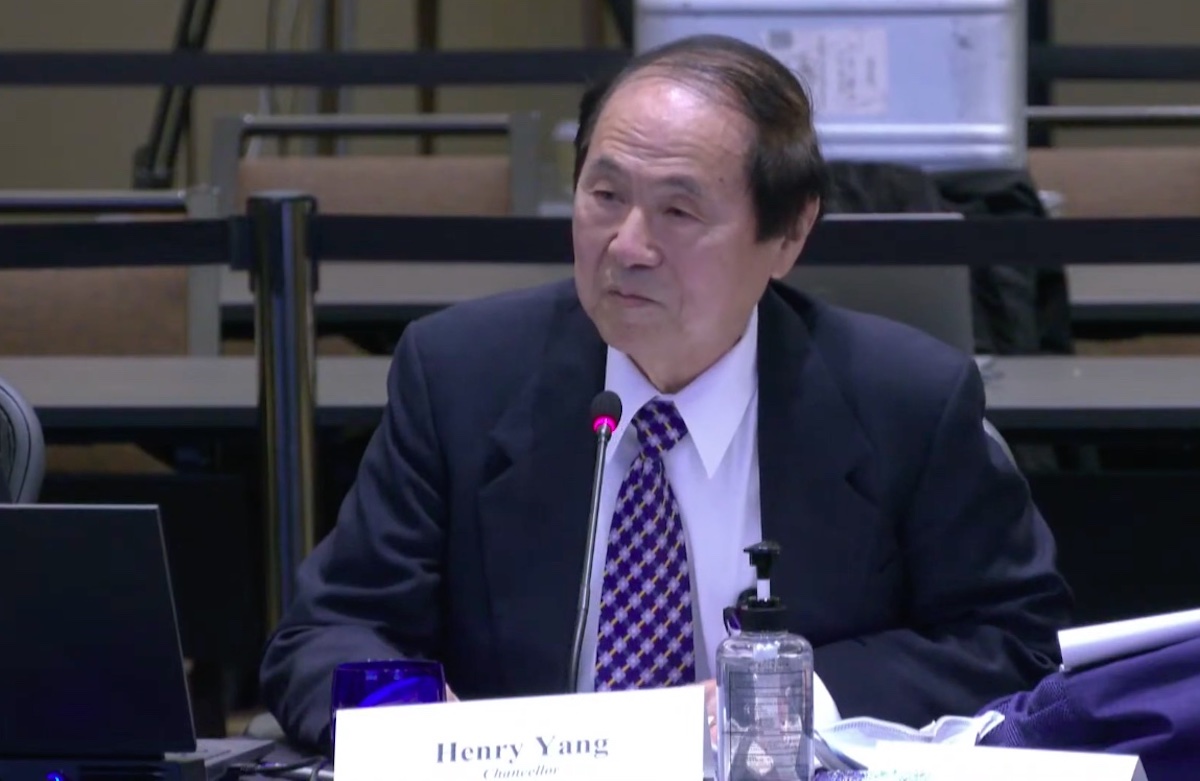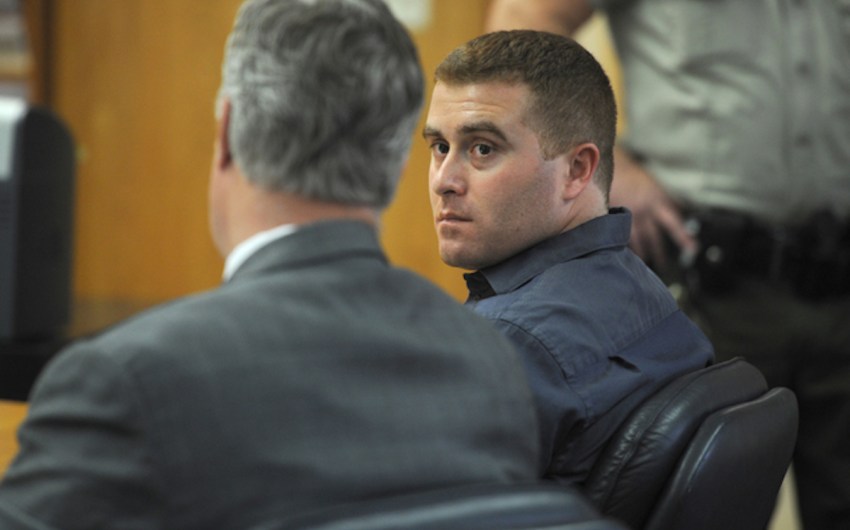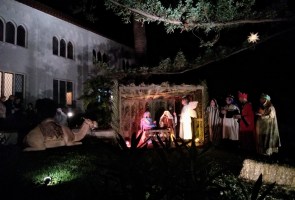Chancellor Henry Yang Is Retiring After 30 Years
The Longest Serving Chancellor in UC Santa Barbara's History

Quarterback and kicker George Blanda set a record for grid-iron durability playing professional football for 26 years; Nolan Ryan topped that, tossing major-league fastballs for 27 years; and Archie Moore — his name now flapping in the breeze of history — traded punches as a professional heavyweight for no less than 28 years. Earlier this week, UCSB Chancellor Henry T. Yang announced his retirement after having clocked 30 years at the helm of the country’s biggest academic and economic juggernaut.
Now 83 years old, Henry Yang has set land speed records for being the longest serving Chancellor in both UCSB history and UC history.
Although recent years have been more than a little bumpy for Yang, he has presided over — and helped guide — an almost cellular transformation of UCSB, taking it from wild-and-wooly party school to an outpost of aggressive scientific scholarship and research. Before Yang — an engineer and scientist by scholarship — UCSB had tilted more towards liberal arts. Under Yang’s tenure, the campus’s reputation as an outpost of bacchanalian excess has remained largely intact — though more decidedly controlled — but that’s been largely offset by the academic rigor increasingly demanded of its incoming students. But even as the percentage of applicants denied admission has increased, UCSB focused — quietly but successfully — on attracting and retaining students of color and first-in-family members to attend a four-year college.
In a letter signed “With all my heartfelt thankfulness,” Yang announced he would be stepping down as Chancellor next year and would go back to the classroom for research and teaching. He praised his wife, Dilling Yang, for her steadfast support and companionship as she embraced the demanding role of Chancellor’s Spouse.
In his written statement, Yang expressed pride and gratitude at being able to manage a campus endowed with six Nobel Prize winners, one Pulitzer prize winner, and with a ranking that is the fifth highest among all public universities in the U.S. by Forbes magazine and U.S. News and World Report. UCSB was also named the first “Hispanic-Serving Institution” among all members of the Association of American Universities.
And when it’s come to fundraising, UCSB, under Yang’s watch, has relentlessly exceeded itself. “Our annual fundraising totals have reached $167 million this past year,” Yang wrote, “up from 10.5 million when I started. Our annual research grants have increased from $81.2 million to $267.2 million last year.” Yang is currently paid a salary of $570,000 a year.
Under Yang’s administration, UCSB has become a roaring engine of economic growth, spinning out between four and six companies a year, and has taken a dramatically more hands-on approach towards patents and intellectual property rights developed by campus researchers. According to Pacific Coast Business Times, UCSB averages 90 patent disclosures a year and has 500 patents and 150 licensed agreements.
Nowhere in his written remarks did Yang indicate why he is announcing his resignation now. Two weeks ago, the UC President Michael Drake — increasingly embattled by mounting campus and political turmoil — announced he was resigning. Notably, Yang singled Drake out for thanks in his remarks. Now two years older than President Joe Biden, Yang’s age has become a gnawing issue on the UCSB campus, one increasingly raised, however politely.
As a public figure, Chancellor Yang ranks up there with John Palminteri for his high profile ubiquity. He has been often seen walking around campus with his wife, Dilling, waving to passers-by, taking selfies with students, and chatting with faculty. But for all his apparent accessibility, Yang, in many ways, has remained singularly insulated and inoculated from many direct interactions. With the media, for example, Yang was conspicuously parsimonious in granting interviews and has taken affront when — on the rare occasion — reporters approached him directly. This public reticence was especially notable with the national and local eruption of ridicule triggered in recent years by Yang’s plans to partner with billionaire benefactor Charles Munger to build an 11-story dorm capable of housing 4,500 students. Making the proposal so controversial — aside from sheer mass and size — was the fact that the vast majority of “windows,” would be electronically programmed to approximate the luminescence of natural light based on time of year and time of day. This massive project, dubbed “Dormzilla” by its detractors, would eventually be scaled back, but the damage was already done. Campus architects, the faculty senate, the county fire marshal, and countless local elected officials had denounced the project.
At no time during all the hubbub over Dormzilla — quietly withdrawn from consideration just last summer — did Yang ever directly address the public — or the media — to explain the project or to make a case for it. (Munger had offered $200 million to cover a small portion of the construction costs in exchange for carte blanche when it came to building design and control over such crucial details as the lightless windows.)
Yang is stepping down at a time when college presidents and university administrators throughout the country have found themselves increasingly caught in a crossfire between free speech rights and allegations of anti-semitism and hate speech in response to Israel’s retaliation against Hamas and the high civilian death toll this exacted. UCSB was hardly immune from campus unrest between conflicting sides.
Encampments went up on campus and Givertz Hall was occupied by pro-Palestinian protestors denouncing the Israeli response as “genocide.” Jewish students more supportive of Israel charged that they were harassed and intimidated and not provided the protection they needed. Ultimately, Yang would face criticism from both sides.
Law enforcement made quick work of the occupiers with a sudden show of potential force, but no arrests were made. And unlike other campuses engulfed in Gaza-inspired turmoil, UCSB managed to hold its graduation ceremonies as planned without disruption.
Throughout it all, Yang sought to work with both sides of the issue — showing up at the encampment at 1 a.m. one night to talk with protestors — while also threatening discipline for other protestors who engaged in unlawful actions.
Earlier in the year, UCSB — like all nine campuses in the UC system — was hit by a significant work stoppage by the union representing campus teaching assistants. When a settlement was eventually reached, teaching assistants at UCSB were among the most vehemently opposed. That’s because the cost of housing in Isla Vista and its environs is among the highest in the state.
As UCSB’s reputation and stature improved, the number of qualified students increased. But with a growing student population, Yang and his administration were accused of violating the terms of the Long Range Development Plan hammered out years ago with the County Board of Supervisors.
The supervisors charged that UCSB had exceeded the enrollment cap contractually agreed upon as part of that plan. Yang’s administrators argued they hadn’t. The facts in dispute were exceedingly close and whether there was a violation all depended upon how the numbers were counted. Very reluctantly, the county supervisors sued Yang and UCSB, charging that they allowed enrollments to soar beyond what was allowed while failing to provide thousands of housing units called for in the long range plan. Less reluctantly, the City of Goleta did too. Ultimately, UCSB would settle these disputes, and that settlement was approved by the county supervisors in the past month.
When he steps down at the end of the coming academic year, Yang will hold a new record: 31 years at the helm of a university whose academic engines are now working at warp speed.
Premier Events
Sat, Dec 21
11:00 AM
Santa Barbara
Mosaic Makers Market – Holiday Weekend Market
Sun, Dec 22
11:00 AM
Santa Barbara
Mosaic Makers Market – Holiday Market Finale
Wed, Dec 25
6:00 PM
Santa Barbara
FREE Contra Dance X-mas Day💃Corwin & Grace band6-9
Sat, Dec 21
11:00 AM
Santa Barbara
Mosaic Makers Market – Holiday Weekend Market
Sat, Dec 21
12:00 PM
Santa Barbara
Gift Wrapping with Life Chronicles
Sat, Dec 21
2:00 PM
Santa Barbara
State Street Ballet’s 30th Anniversary Production of ‘The Nutcracker’
Sat, Dec 21
4:00 PM
Santa Barbara
Wine + Painting Workshop
Sat, Dec 21
5:00 PM
Santa Barbara
The Rhythm Industrial Complex: Live at Fox Wine Co
Sat, Dec 21
5:00 PM
Santa Barbara
LET IT GLOW Winter Solstice on State St.
Sat, Dec 21
5:15 PM
Santa Barbara
The Longest Night Memorial
Sat, Dec 21
5:30 PM
Santa Barbara
First United Methodist Church Living Nativity
Sat, Dec 21
6:00 PM
Santa Barbara
Captain Fatty’s Ugly Xmas Sweater Party
Sat, Dec 21
6:30 PM
Santa Barbara
Ugly Sweater Singles 30s and 40s Party!
Sat, Dec 21 11:00 AM
Santa Barbara
Mosaic Makers Market – Holiday Weekend Market
Sun, Dec 22 11:00 AM
Santa Barbara
Mosaic Makers Market – Holiday Market Finale
Wed, Dec 25 6:00 PM
Santa Barbara
FREE Contra Dance X-mas Day💃Corwin & Grace band6-9
Sat, Dec 21 11:00 AM
Santa Barbara
Mosaic Makers Market – Holiday Weekend Market
Sat, Dec 21 12:00 PM
Santa Barbara
Gift Wrapping with Life Chronicles
Sat, Dec 21 2:00 PM
Santa Barbara
State Street Ballet’s 30th Anniversary Production of ‘The Nutcracker’
Sat, Dec 21 4:00 PM
Santa Barbara
Wine + Painting Workshop
Sat, Dec 21 5:00 PM
Santa Barbara
The Rhythm Industrial Complex: Live at Fox Wine Co
Sat, Dec 21 5:00 PM
Santa Barbara
LET IT GLOW Winter Solstice on State St.
Sat, Dec 21 5:15 PM
Santa Barbara
The Longest Night Memorial
Sat, Dec 21 5:30 PM
Santa Barbara
First United Methodist Church Living Nativity
Sat, Dec 21 6:00 PM
Santa Barbara
Captain Fatty’s Ugly Xmas Sweater Party
Sat, Dec 21 6:30 PM
Santa Barbara























